6 of the Most Amazing Green Tea Health Benefits
TEATIME NOTES
Find tips, recipes, and articles to increase your delight and enjoyment of tea.
6 of the Most Amazing Green Tea Health Benefits
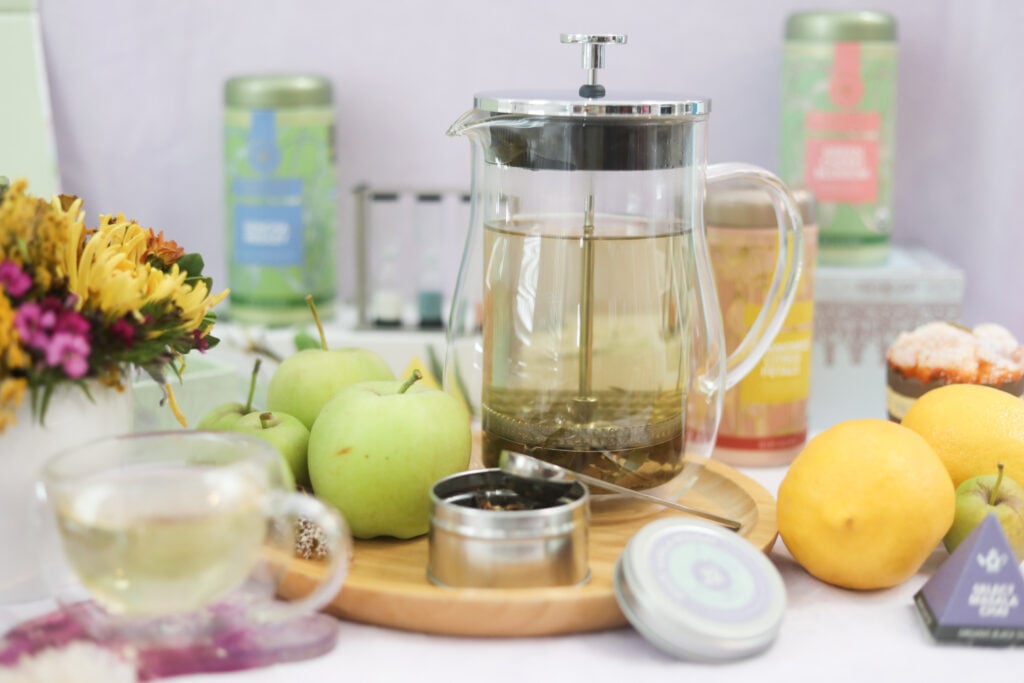
Promising Studies You Need to Know About Green Tea
Green tea may be trendy, but green tea's health benefits are abundant.
It’s hard to not judge green tea for all its popularity right now. From “instant” matcha to tropical fruit-infused tea sachets and green tea smoothies — you might wonder if green tea is just a fad or if there is something to it.
If you’re a skeptic, this science-backed blog is for you. We’ll touch on six incredible green tea health benefits that may help boost your wellness.
But first — what is green tea, and what makes it different from other kinds of tea?
What is Green Tea?
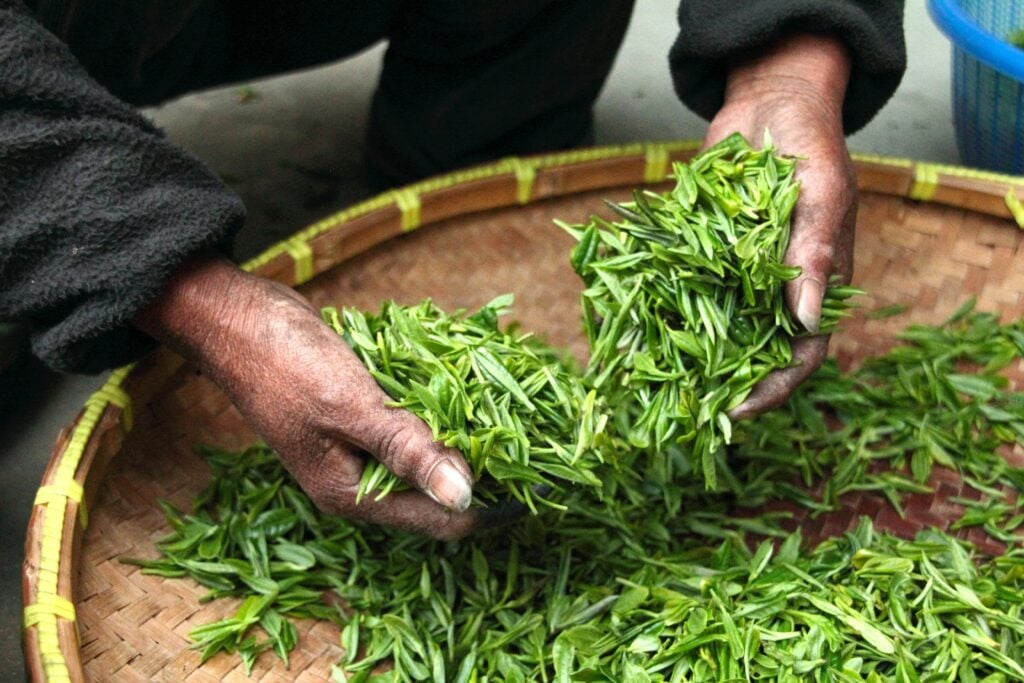
All teas are harvested from the Camellia sinensis plant. Yes, all of them, from black and green to oolong and white tea.
The climate and how the tea leaves are handled after harvest completely transforms them. What sets green tea apart from black, oolong, and white tea is that it isn’t oxidized. Certain green tea health benefits might be abundant because of how little this kind of tea is handled during the production process.
Green tea leaves are shaped and formed into various shapes and are sorted by size. With green tea, you taste a broad range of flavors from earthy sencha to the sweet floral bouquet of jasmine pearl tea. When you drink green tea, you taste the natural and intentional flavor of each unique and artistic batch.
Green tea is so delicious it’s easy to forget just how healthy it is for you. Here are some of the most amazing benefits you can harness by drinking green tea.
6 Green Tea Health Benefits
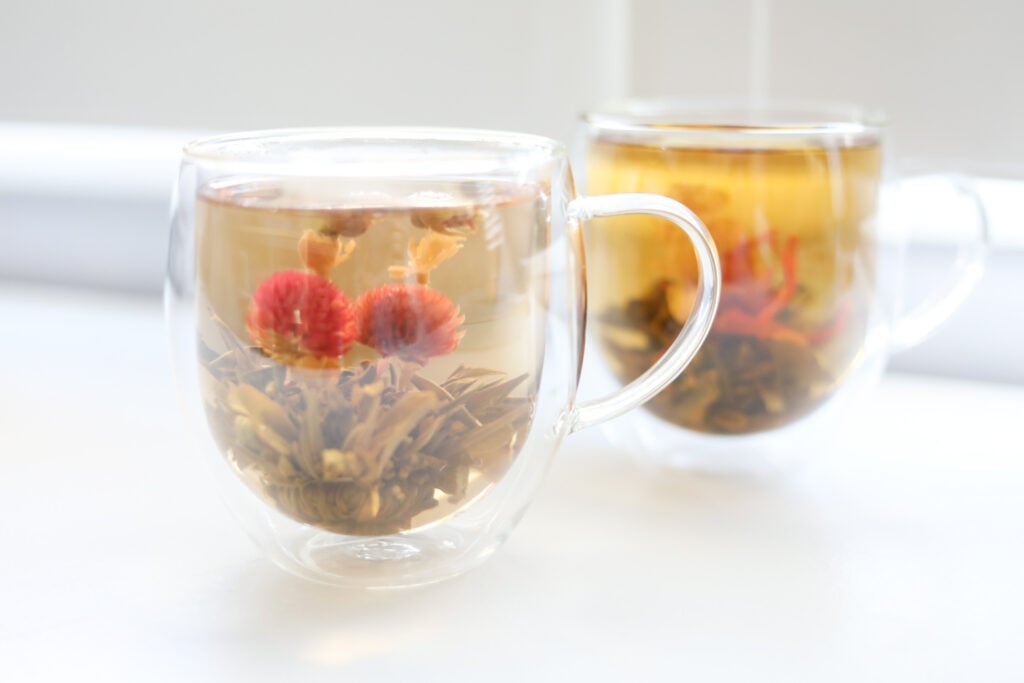
Tea has been used in China as a natural medicine for thousands of years. While it isn’t a cure-all for sickness, it might help with various health concerns or help prevent certain chronic diseases.
Here are six science-backed green tea health benefits you can take advantage of, today.
1. Plenty of Polyphenols

The first green tea health benefit is a high source of polyphenols which are an antioxidant. Polyphenols may reduce the risk of cardiovascular diseases, chronic diseases, and even some cancers.
Polyphenols help reduce inflammation and promote good circulation. They can also help control your blood sugar levels.
2. Abundant Catechins

Green tea is full of catechins. One of the most prevalent catechins in green tea is epigallocatechin-3-gallate (EGCG) which is the strongest of the 6 catechins.
Some studies show that EGCG might be chemo-protective, which means it could help your body if you are going through chemotherapy treatments. Some studies state that EGCG might even be able to slow down the fast growth of certain kinds of cancer cells.
3. Relaxing L-theanine

L-theanine is found in mushrooms, green tea, and black tea. It’s an amino acid that may help reduce stress and anxiety.
L-theanine found in green tea is a health benefit that can help increase your activity level while also relaxing your mind. This means you can drink it for a stable caffeine boost throughout the day. It doesn’t give you a caffeine crash or have adverse effects like the caffeine boost you get from coffee.
4. Natural Flavonoids

Flavonoids are found naturally in certain plants, including green tea. They are very rich in antioxidant activity and might help you stay healthy by fending off everyday toxins.
Flavonoids may help reduce the risk of chronic health conditions. It has cardiovascular benefits and can help reduce blood pressure as well as LDL — or bad cholesterol.
5. Green Tea is Anti-Cavity

Another green tea health benefit is that it supports the health of your mouth and teeth. It may help with bone loss, and it may help limit the growth of certain bacteria that are linked to diseases in the mouth. Green tea’s anti-inflammatory properties also help with the general health of your mouth and can even help reduce bad breath.
6. Green Tea is Anti-Diabetic

Studies show that green tea's health benefits might also have an anti-diabetic effect. If you have type 2 diabetes, you might want to consider adding green tea to your diet to help reduce your blood sugar levels. One study in Japan showed that drinking a good amount of green tea could help prevent type 2 diabetes by up to 42%.
What Kind of Green Tea Should You Drink?
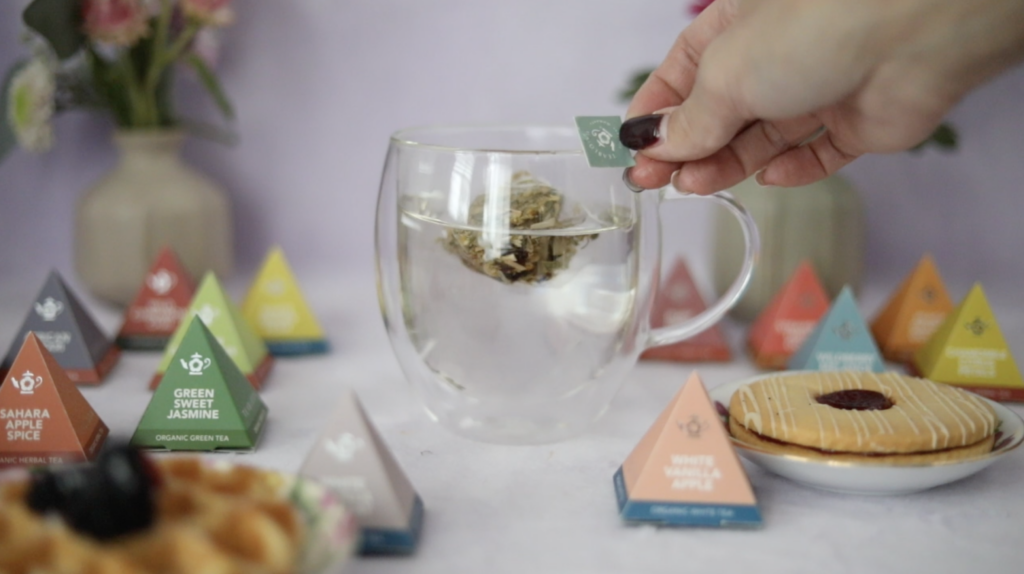
There are over 1500 kinds of green teas that all have different characteristics and flavor profiles. It doesn’t matter what variety of green tea you drink as long as it isn’t overprocessed and doesn’t have any added sugar or dried fruit.
One thing is certain — you should stay far away from tea bags and here’s why!
The Concerns Over Teabags, Microplastics, and Tea Dust

Most teabags in the market are made from materials that leach plastic particles in your tea. Studies show that billions of microplastics are released into your cup of tea from common tea bag materials. These tiny plastic pieces are small enough that they may cause serious health concerns by making their way into your bloodstream.
But, the tea from teabags may also be an issue.
Traditional tea bags are harmful, but the tea itself is made with different parts of the tea plant that are crushed into bitter tea dust particles. This low-quality tea may not carry as many green tea health benefits as tea that is harvested traditionally by hand and with great care.
What to Look For In Healthy Green Tea
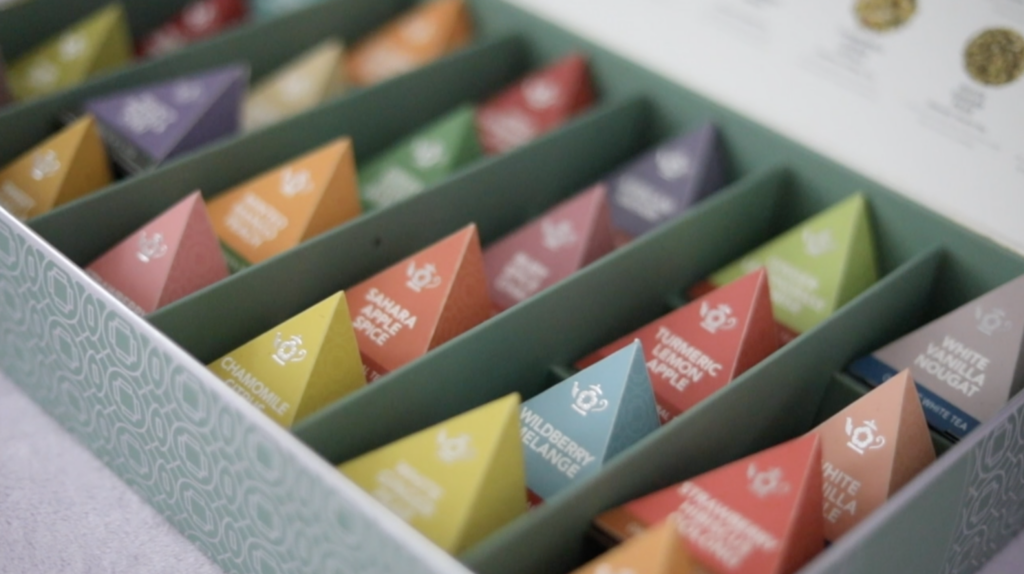
Our advice is to drink loose-leaf tea if you can. It’s even better if you can find USDA-Certified Organic loose-leaf teas. Hand-plucked teas harvested from small, family-owned farms, in small batches, are your ideal option for healthy, quality green tea — it also tastes much better than tea dust.
If you prefer the convenience of tea bags, these 100% compostable tea sachets are a healthy and high-quality option. Tea sachets are better than biodegradable because they break down completely in your compost within a few months and don’t leach microplastics into your tea.
It’s important to know most tea bags wreak havoc on the environment and your health. These incredible tea sachets are filled with the same high-quality whole-leaf teas you get in loose-leaf tea canisters.
How Should You Prepare Green Tea?
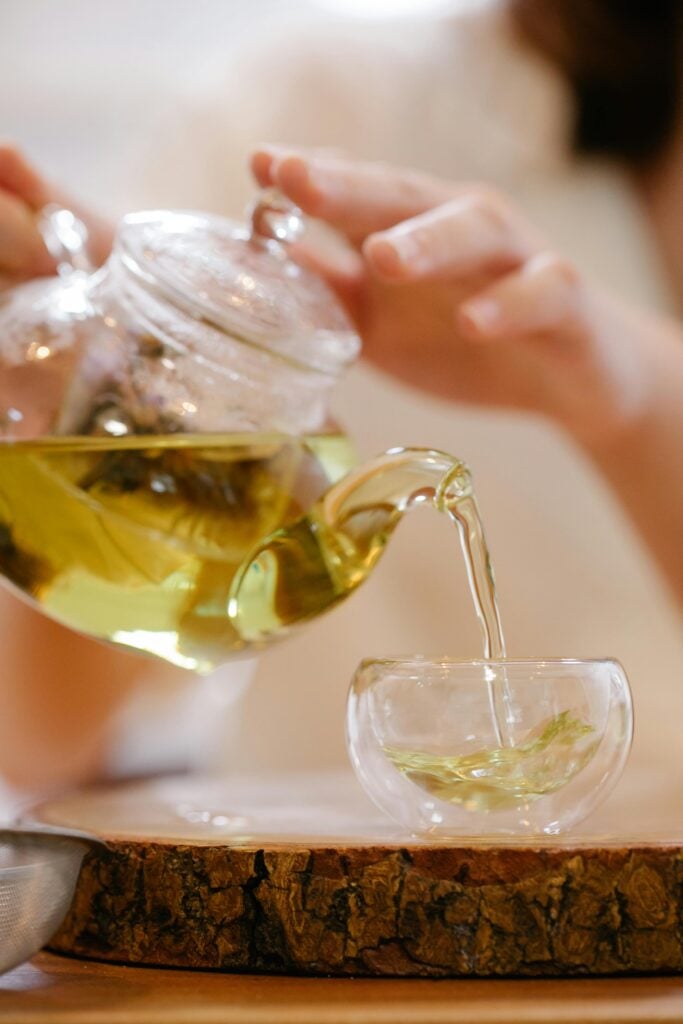
Because green tea is not oxidized this makes the tea leaves more delicate. This means you must steep your green tea at a lower temperature than other teas. If you don’t you risk burning the leaves and releasing bitter flavors or not enough flavor.
You’ll want to steep your tea properly so you get all those green tea health benefits people are raving about.
Green teas come in a variety of shapes and flavors, so always check the packaging for specific steeping instructions. For most green teas, heat your fresh water to about 175° F. Some green teas will require a little hotter or cooler water temperatures.
Warm up the cup or teapot by swirling some hot water around the vessel before adding your tea leaves. Adding your tea leaves and water directly to a cold teapot might make the temperature of the water drop. It’s important to heat your cup or teapot because if the water isn’t hot enough, your tea will taste watery and weak.
Dump out the water used to heat the teacup or teapot and add fresh hot water and tea. Steep your tea for 2 to 4 minutes, remove your tea leaves, and set them aside.
You can re-steep your tea leaves multiple times. If you completely drain your tea leaves, you can re-steep another pot of tea with the same leaves. Do this immediately following the first steep.
Green tea is meant to be enjoyed plain for better health benefits and flavor. Milk and sugar will not only overpower the delicate flavors of green tea but may counteract green tea's health benefits.
How Much Green Tea Should You Drink?
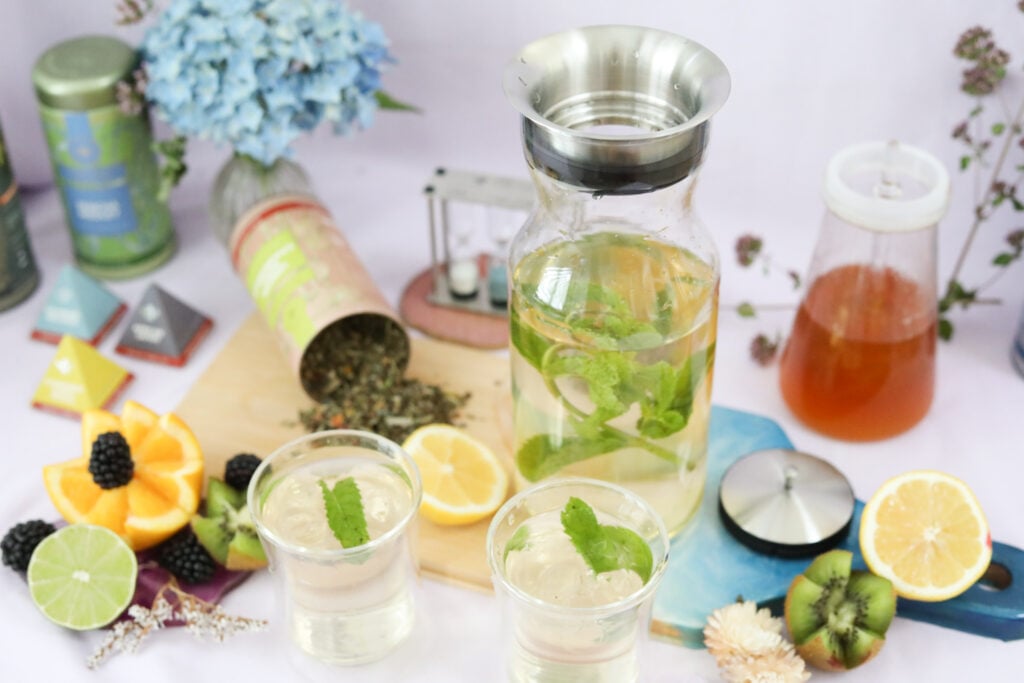
Too much of anything is never a good thing even when it comes to something as healthy as green tea. Studies show that drinking 3 to 5 cups of green tea a day might have significant health benefits. It’s important to note that you might want to stay away from drinking green tea if you take blood thinners or have extreme caffeine sensitivities.
Explore Green Tea at Teabloom
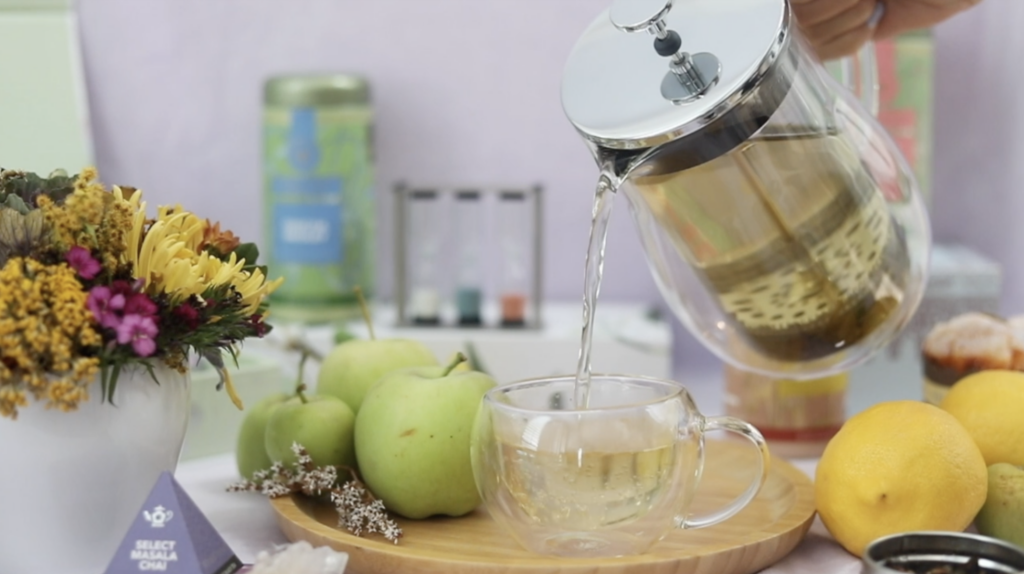
Do you think you’ll take advantage of green tea's health benefits and add it to your daily tea routine? Green tea may help with some chronic diseases, it can give you a stable energy boost, and it may help combat type 2 diabetes. Green tea is simply amazing!
If you’re looking for quality green tea, Teabloom’s collection is healthy and delicious. Their USDA-Certified Organic loose leaf teas are also kosher and sourced from single-origin farms. Their innovative and groundbreaking tea sachets are 100% compostable — much better than biodegradable — and they are filled with quality whole-leaf teas.
Sourcing healthy tea is only half the battle. Your teaware has a significant impact on the nutrients in your tea. For the purest tea, take a look around at Teabloom’s revolutionary borosilicate glass teaware.
These beautifully handcrafted teapots, cups, and mugs are made with clean and sustainable materials that don’t leach toxic chemicals into your tea — unlike many other kinds of porcelain and metal teaware.
Teabloom is on a mission to create a healthier, transparent, and honest tea experience for everyone.
Start your clean and healthy tea journey, today and experience green tea’s health benefits starting with Teabloom.
*The information provided in this post is not intended to be a substitute for professional medical advice, diagnosis, treatment, or prevention. If you or someone you know has a medical concern, you should consult with your professional healthcare provider or seek other professional medical treatment.

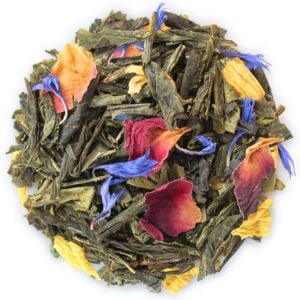

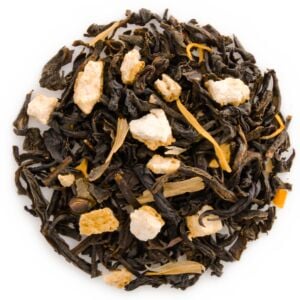
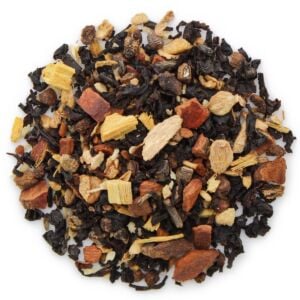
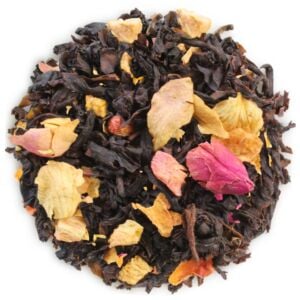
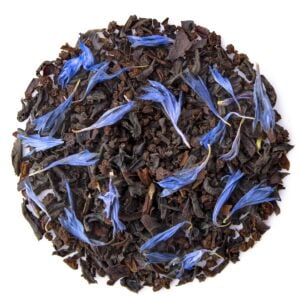
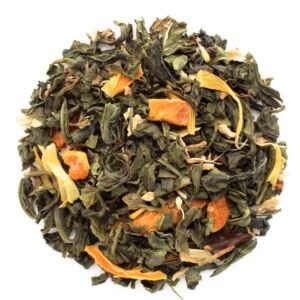
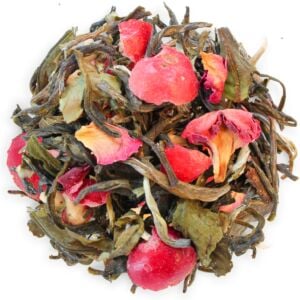
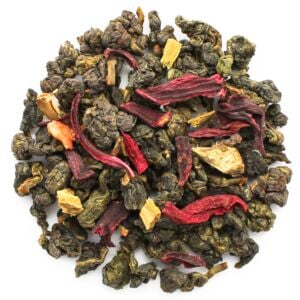
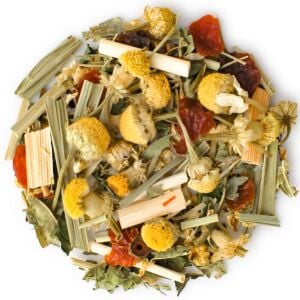
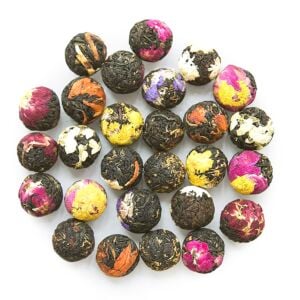



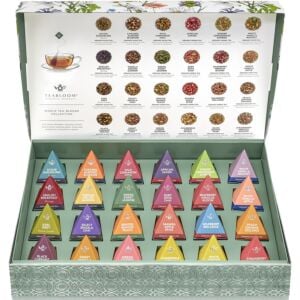


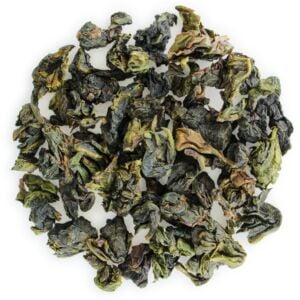
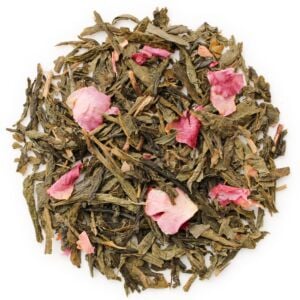
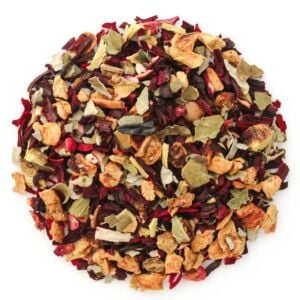
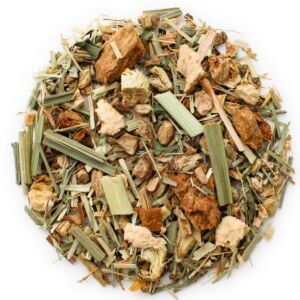

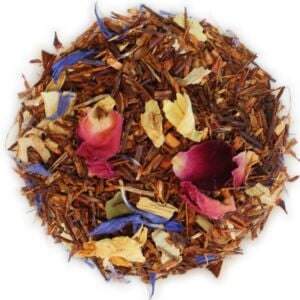
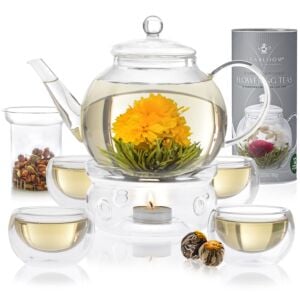
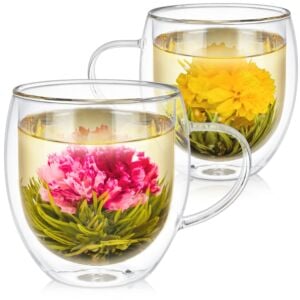
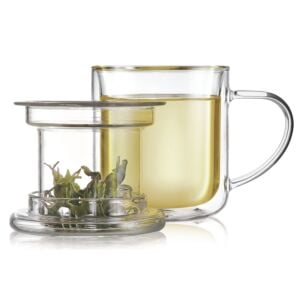


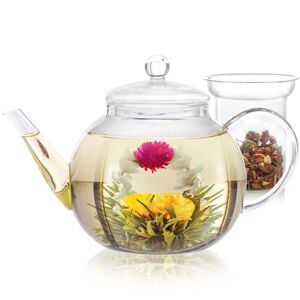

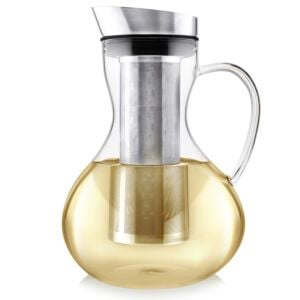



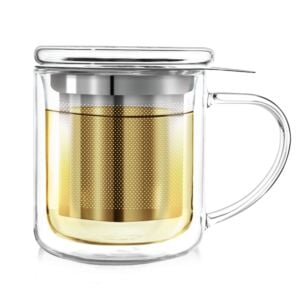
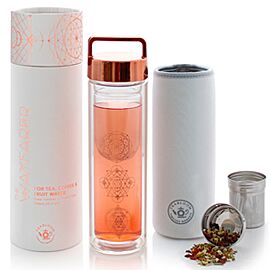


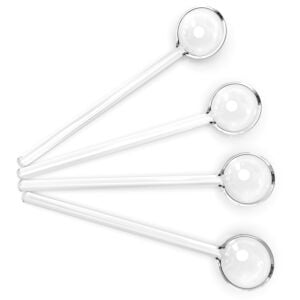
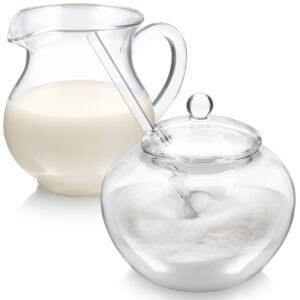
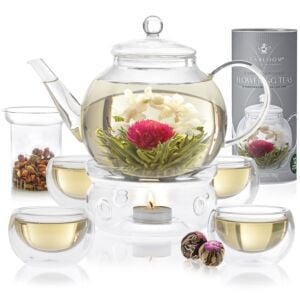

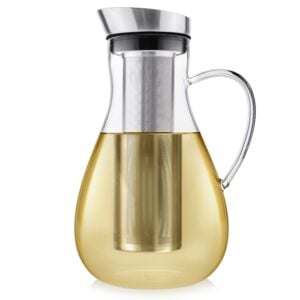

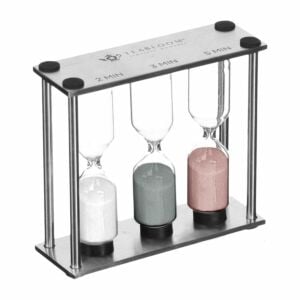

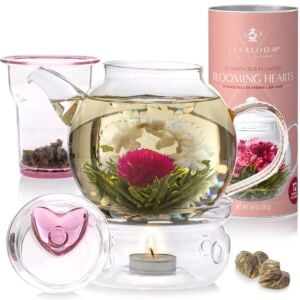

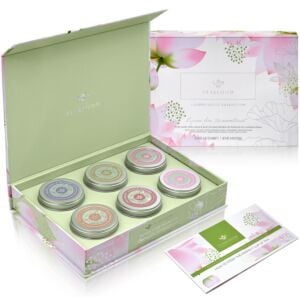



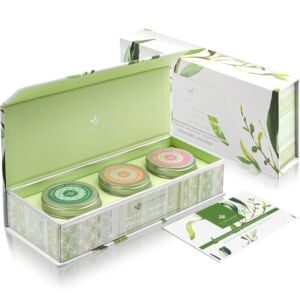
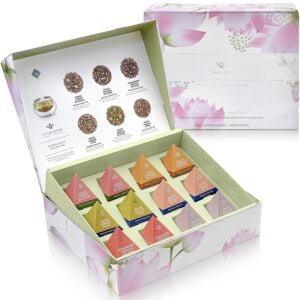

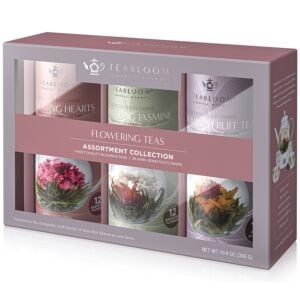

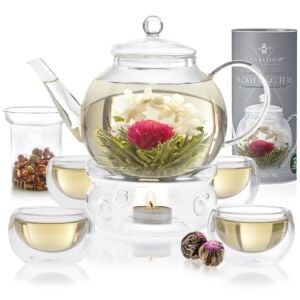
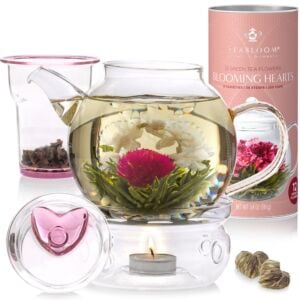

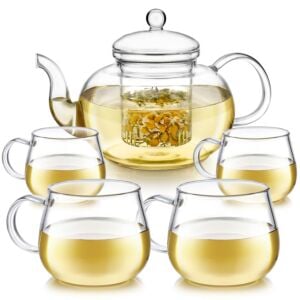
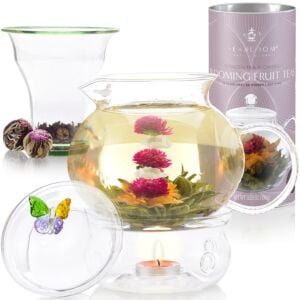






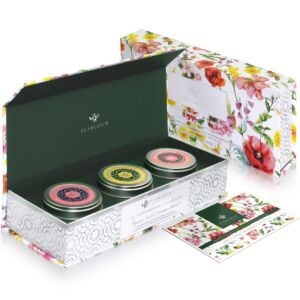
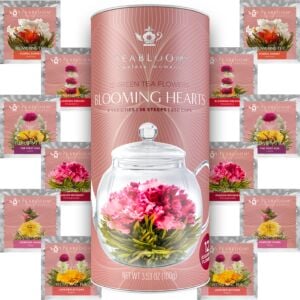

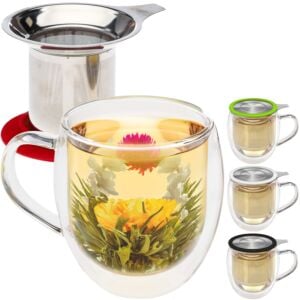


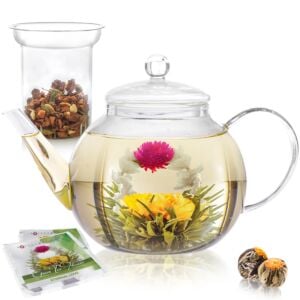
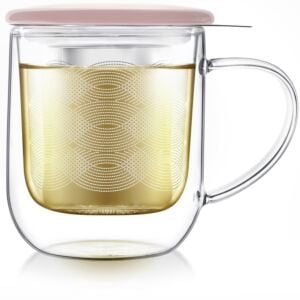


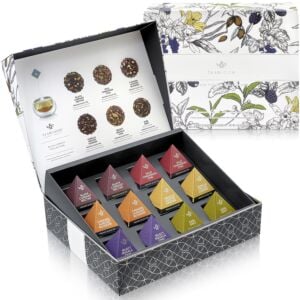
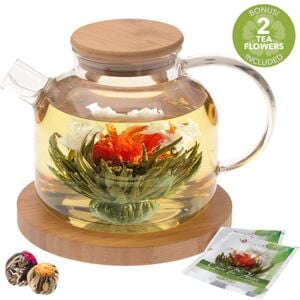

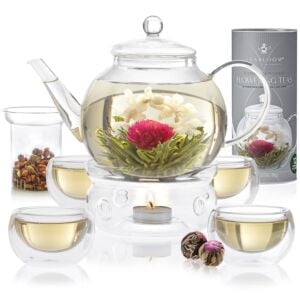

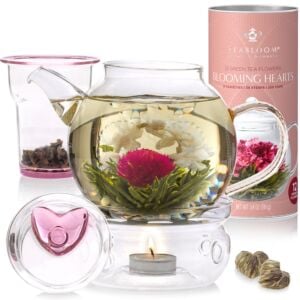

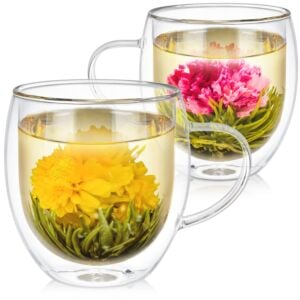

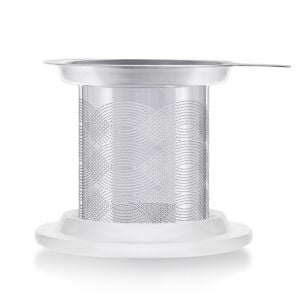

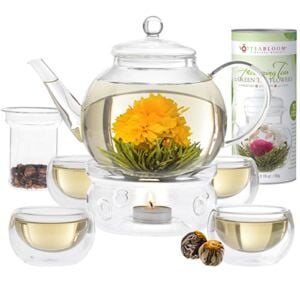

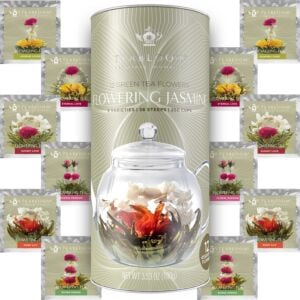


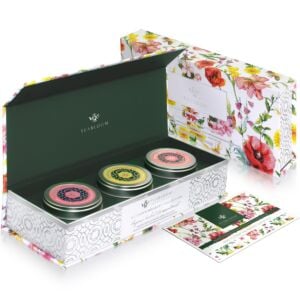
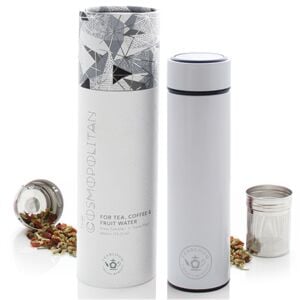

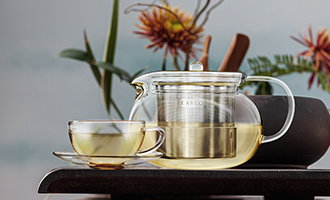
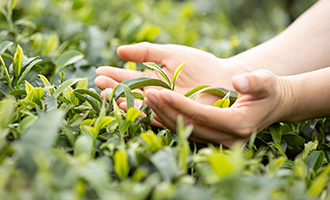
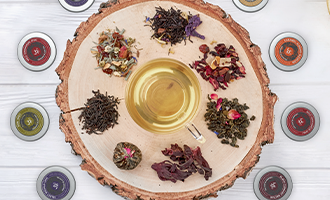
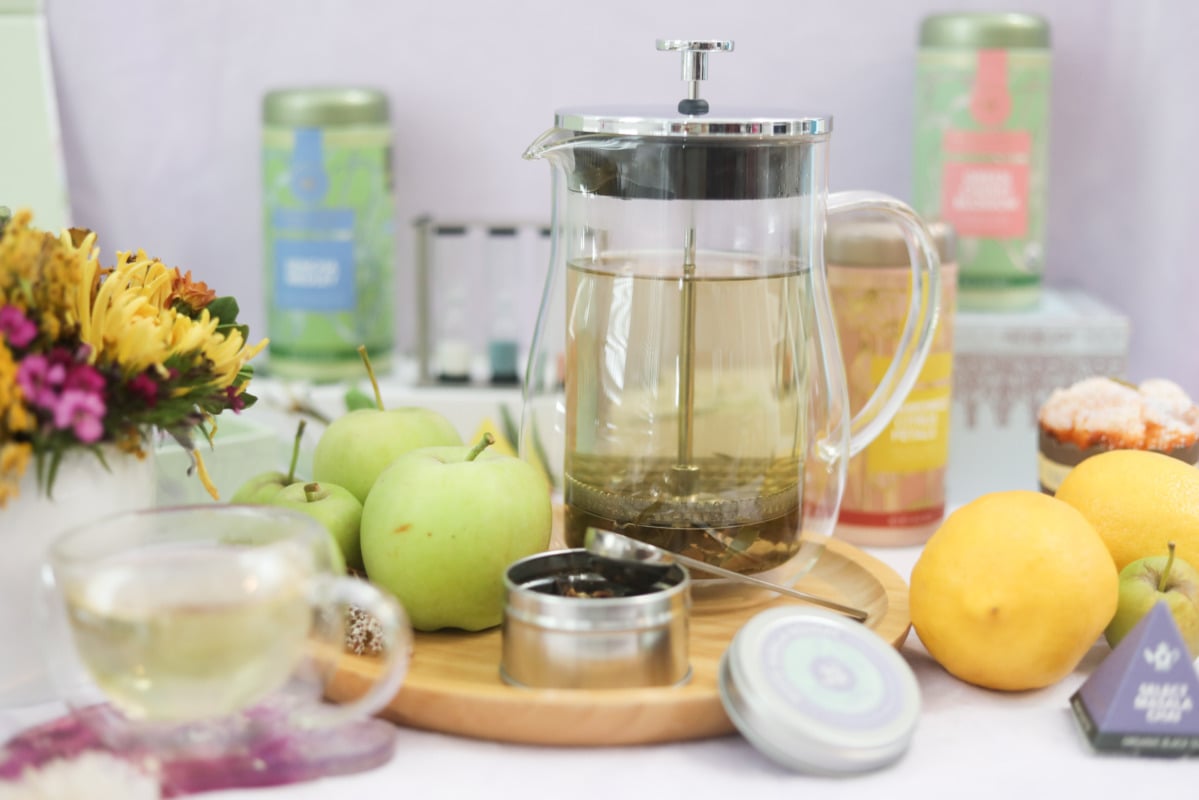

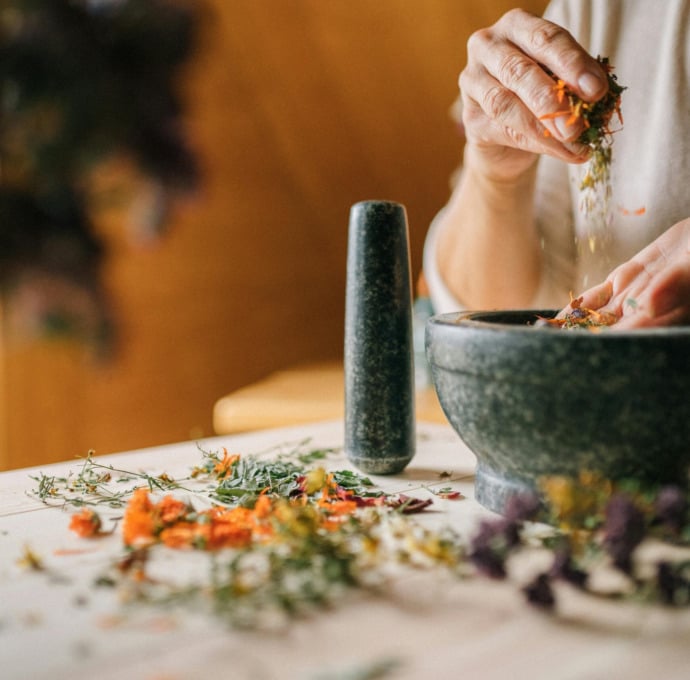

Share your thoughts